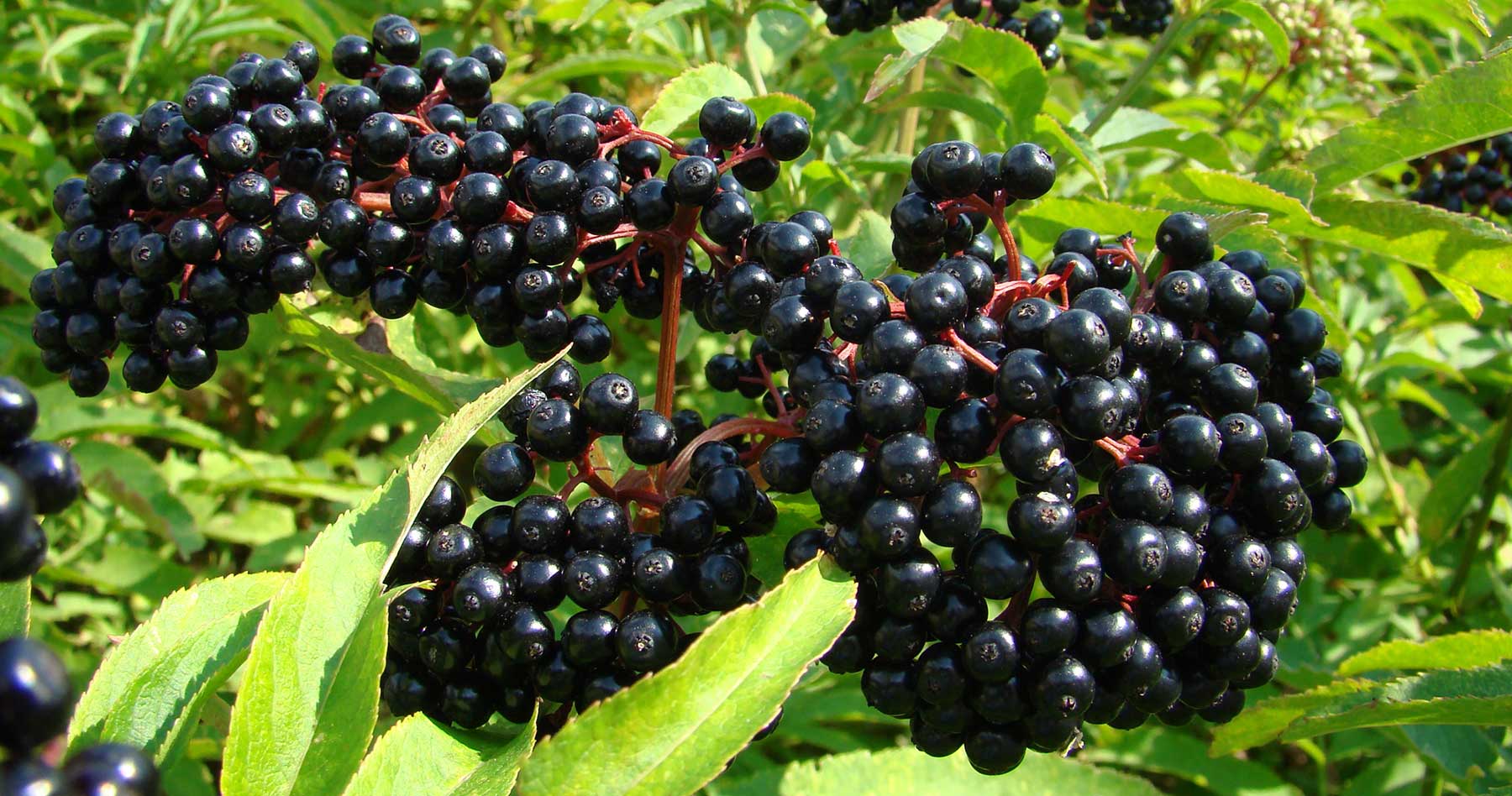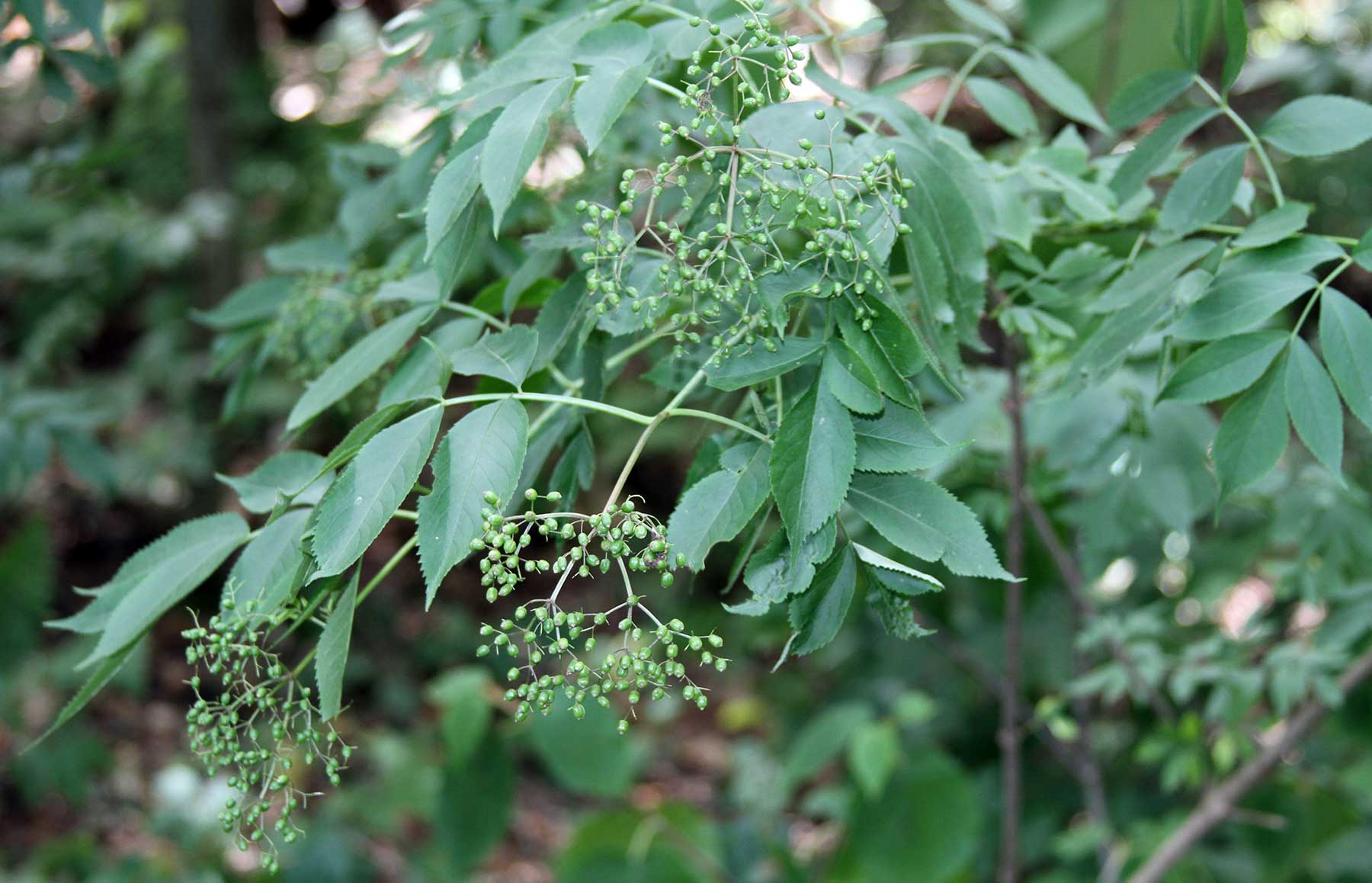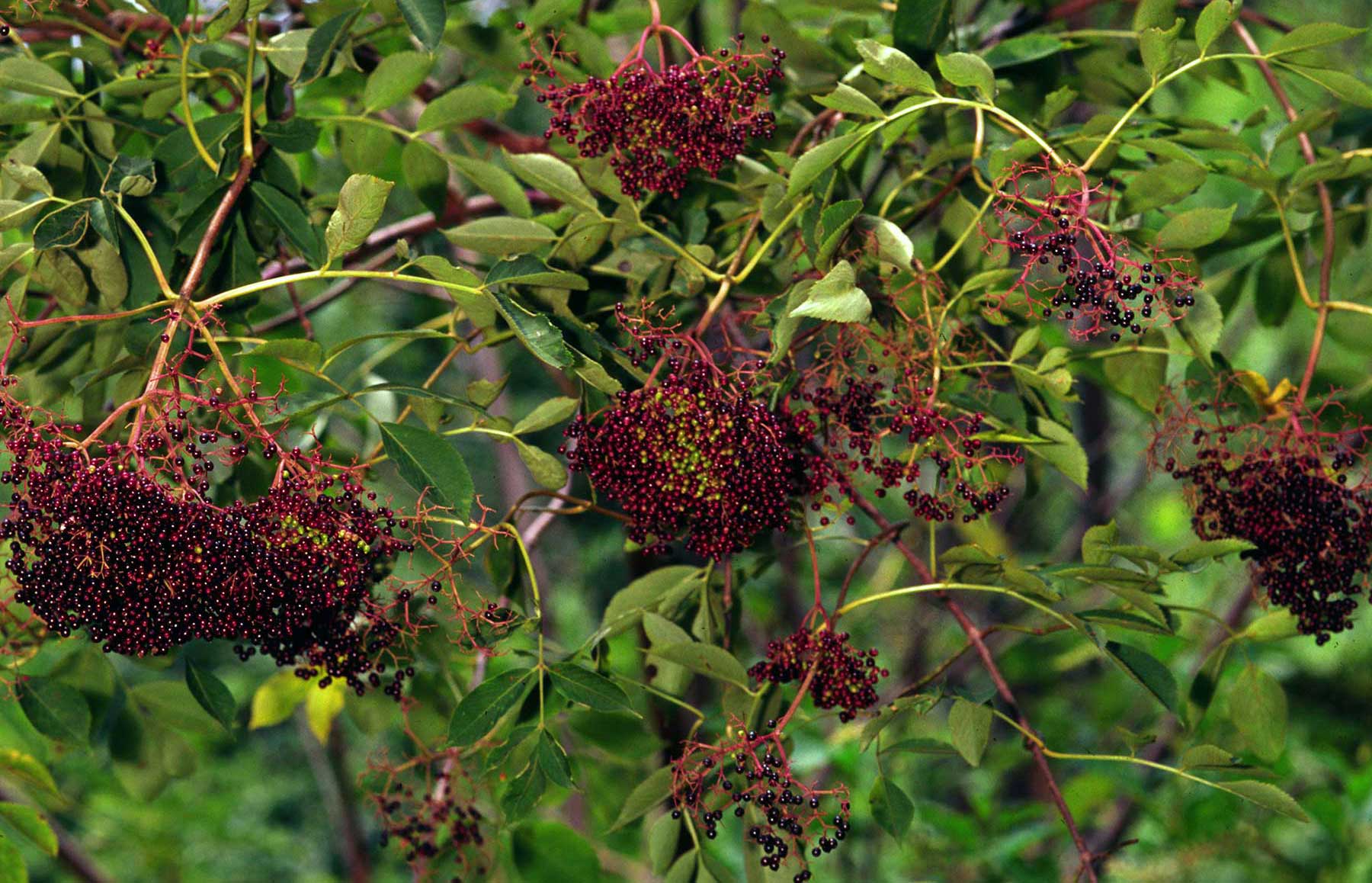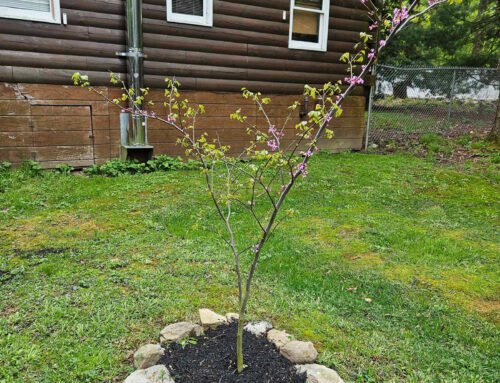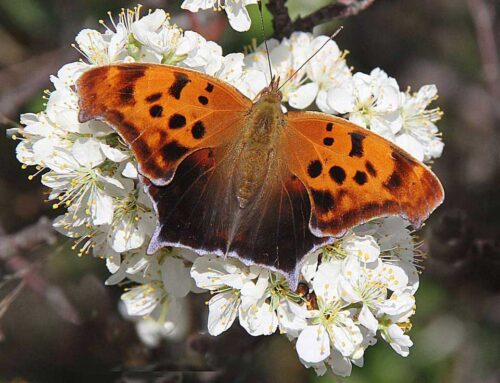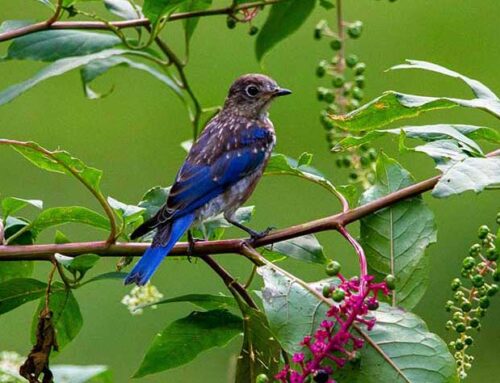Common Elderberry | Sambucus canadensis
Sustainable Landscaping with Conservation Biological Control
“The attractive fruit, especially the bright, colorful berries of shrubs like winterberry, chokeberries, elderberries and viburnums, provide a magnificent display of seasonal interest to the natural as well as the home landscape. They also provide critical nourishment for birds and other wildlife, which are struggling to find food and the habitats they need in the northeastern United States.”
”
Landscaping with Native Plants
Commonly called American elderberry, Sambucus canadensis, is native to eastern North America. It is a deciduous shrub that typically grows to 5-12’ tall. Having small lemon-scented white flowers that appear in large flat-topped clusters in May and June, it tolerates medium to wet, well-drained soils in full sun to part shade. The flowers give way to clusters of black elderberry fruits (called drupes) in late summer.
 Elderberries are excellent plants for wildlife gardens too. Many birds and small mammals love the berries and it is a host plant for a number of butterflies and moths, most notably the Cecropia moth, North America’s largest moth. Birds that eat the small fruits include the Ruffed Grouse, Ring-necked Pheasant, Greater Prairie Chicken, Eastern Bluebird, Northern Cardinal, Gray Catbird, Northern Mockingbird, American Robin, House Finch, Wood Thrush, Red-eyed Vireo, Cedar Waxwing, and White-throated Sparrow. Elderberry provides nesting materials/structure for native bees. It is a plant that native bees nest beneath, within, or harvest parts from to construct their nests. It also supports and provides Conservation Biological Control by attracting predatory or parasitoid insects that prey upon common garden pest insects.
Elderberries are excellent plants for wildlife gardens too. Many birds and small mammals love the berries and it is a host plant for a number of butterflies and moths, most notably the Cecropia moth, North America’s largest moth. Birds that eat the small fruits include the Ruffed Grouse, Ring-necked Pheasant, Greater Prairie Chicken, Eastern Bluebird, Northern Cardinal, Gray Catbird, Northern Mockingbird, American Robin, House Finch, Wood Thrush, Red-eyed Vireo, Cedar Waxwing, and White-throated Sparrow. Elderberry provides nesting materials/structure for native bees. It is a plant that native bees nest beneath, within, or harvest parts from to construct their nests. It also supports and provides Conservation Biological Control by attracting predatory or parasitoid insects that prey upon common garden pest insects.
Conservation biological control is the implementation of practices that maintain and enhance the reproduction, survival, and efficacy of natural enemies (predators, parasitoids, and pathogens) of pests. Natural enemies are important in regulating populations of many agricultural and forest insect pests. Approaches to conservation of these natural enemies involve avoidance of practices harmful to them, as well as adoption of practices that benefit them. Like other animals, insect natural enemies require food, water, and shelter, and protection from adverse conditions; and Sambucus canadensis provides these.
To achieve the goals of conservation biological control, fundamental knowledge of the biology and requirements of natural enemies is needed. Perhaps the most important rule of conservation biological control is the physician’s maxim, “first, do no harm.” Using pesticides and insecticides to control garden pests can have both direct and indirect effects on beneficial bugs, one of which is acute or chronic mortality.
The prize for growing elderberries is the fragrant, edible flowers and the delicious fruits. The dark purple berries contain vitamins A and B, and more vitamin C than oranges. They are also high in cancer-fighting antioxidants. In fact, elderberry fruits have historically been used to treat many ailments, such as respiratory problems, colds, and flus.
Family:
Adoxaceae
Zone:
3 to 9
Height
5 to 12 ft
Spread
5 to 12 ft
Fruit
Showy, Edible
Attracts
Birds, Butterflies
Bloom Time
June/July
Bloom Color
White
Light
Full sun/part shade
Water
Medium to wet
Flower
Showy, Fragrant
Tolerates
Erosion, Clay/Wet Soil
At Lincoln Landscaping cultivating the environment is our life and livelihood. It is our number one goal to help our clients create and maintain beautiful landscapes while reducing the impact on the environment. Whether you are interested in a pollinator landscape garden design and build or other landscaping or property management project; we can create for you an environmentally friendly, organic and beautiful property.
Lincoln Landscaping “The Natural Choice”
Mike Kolenut President & CEO
https://lincolnlandscapinginc.com
(201) 848-9699

